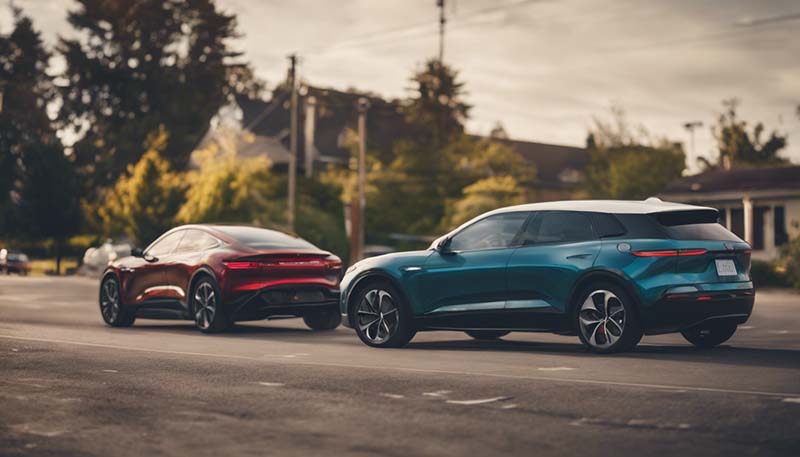Introduction
The automotive industry is undergoing a significant transformation as electric vehicles (EVs) continue to gain momentum. With advancements in technology and growing environmental concerns, new EVs are not only becoming more popular but are also outperforming traditional gasoline-powered cars in various aspects. This article will explore the reasons behind this power surge and how electric vehicles are setting new benchmarks in performance, efficiency, and sustainability.
Performance
Instant Torque and Acceleration
One of the most significant advantages of electric vehicles is their instant torque. Unlike internal combustion engines (ICE) that require a build-up of power, EVs can deliver maximum torque as soon as the driver hits the accelerator. This results in quicker acceleration and a more responsive driving experience.
Handling and Weight Distribution
The batteries in EVs are typically located in the floor of the vehicle, which lowers the center of gravity. This improved weight distribution leads to better handling and stability, making EVs more agile and safer to drive.
Advertisement
Efficiency
Lower Operating Costs
EVs are more energy-efficient than gasoline cars. Electricity is cheaper than gasoline, and EVs convert a higher percentage of the electrical energy from the grid to power at the wheels. This translates to lower operating costs for drivers.
Regenerative Braking
Another efficiency advantage of EVs is regenerative braking. This technology allows the car to recapture some of the energy that's usually lost during braking, converting it into electricity and recharging the battery.
Environmental Impact
Zero Emissions
EVs produce zero tailpipe emissions, which means they do not emit any pollutants that can harm the environment or human health. This is a significant advantage over ICE vehicles, which emit greenhouse gases and other pollutants.
Renewable Energy Integration
As the energy grid becomes greener with the adoption of renewable energy sources like solar and wind power, the carbon footprint of EVs will continue to decrease. Charging an EV with renewable energy makes it even more environmentally friendly.
Technological Advancements
Smart Charging and Grid Integration
EVs are becoming increasingly integrated with smart charging systems that allow for more efficient use of electricity. These systems can be programmed to charge during off-peak hours, reducing strain on the grid and lowering electricity costs.
Autonomous Driving and Connectivity
Many new EVs are equipped with advanced driver-assistance systems (ADAS) and are being designed with autonomous driving capabilities in mind. The integration of high-speed connectivity allows for over-the-air updates and improved vehicle-to-vehicle (V2V) and vehicle-to-infrastructure (V2I) communication.
Future Outlook
The future of the automotive industry is electric. As battery technology improves, charging infrastructure expands, and governments worldwide offer incentives for EV adoption, the demand for electric vehicles is expected to grow exponentially. The performance, efficiency, and environmental benefits of EVs make them a compelling choice for consumers and a crucial part of the solution to reducing global carbon emissions.
Conclusion
In conclusion, new electric vehicles are outperforming gas cars in several key areas, including performance, efficiency, and environmental impact. As technology continues to advance and the global shift towards sustainable transportation gains momentum, EVs are poised to become the dominant force in the automotive market.

Comment Box